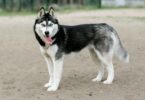You might be asking yourself how long your Goldendoodle will stay with you. As a pet owner, it is important to know the lifespan of your dog so that you can prepare to provide the best life to your dog. Golden Retrievers are cross-bred with Poodles to give the Goldendoodles, a charming breed with a friendly disposition and hypoallergenic fur. But how long do these beloved companions typically live?
The average life of a Goldendoodle is between 10 and 15 years. Given the right care though, they have been known to live to 17-18 years. Diet, exercise and regular veterinary check-ups are also important factors that will define their longevity. The key to a healthy lifestyle of your Goldendoodle can make all the difference in their life expectancy.
Your Goldendoodle can thrive by having a nutritious diet, exercise and mental stimulation. To get more in-depth care advice, check out our mini Goldendoodle care guide so your fur baby can have a long, happy life.
Overview of Goldendoodle Lifespan and Popularity
Goldendoodles are the new breed of dog that has gained popularity with dog owners due to their nature of being friendly like the Golden Retrievers and being intelligent and hypoallergenic like Poodles. This rare mix provides an excellent companion that sheds little, and thus they are the best pets in families that have allergies.
Breed Background and Appeal
Golden Retriever and Poodle mix produce a breed of dogs that are intelligent and loving in nature. This cross vigor usually leads to healthier children than those of purebred dogs, which makes them live longer and healthier.
Golden Retrievers are known to be very friendly and active dogs whereas Poodles have been known to have low shedding curly coats. The combination of the two makes a loving, yet adaptable breed that is ideal in an active family or even the first-time dog owner.
Statistical Lifespan Ranges
The average life span of a Goldendoodle is 10 to 15 years, some have been reported to live up to 18 years. They have a variable life expectancy depending on their size, whereby smaller dogs tend to live longer than the larger ones. The correct care such as balanced diet and exercise are important in maximizing their life expectancy.
Essential Factors Affecting Goldendoodle Lifespan
Knowing what determines the lifespan of your Goldendoodle is important in making them live the best life. Genetics, size, and lifestyle all play significant roles.
Genetics, Size, and Breed Variations
Golden Retriever and Poodle genetics combine to provide Goldendoodles with a wide health profile. They differ in size, mini, medium, or standard, and this can influence their lifespan whereby small dogs tend to live longer.
Impact of Lifestyle and Exercise
Regular exercise is vital. Strive to have 30 minutes to 2 hours a day depending on the size and the energy of your dog. Mental stimulation and socialization also contribute to their well-being.
Exploring Health and Genetic Considerations
Being aware of the health and genetic life of your dog is critical to his long and happy life. Although Goldendoodles are healthy in most cases, they may be affected by some health problems that need to be addressed.
Hybrid Vigor and Genetic Testing
One advantage of crossbreeding, hybrid vigor, can lead to a healthier dog than the purebred parents. This is because, the genetic variability of Golden Retrievers and Poodles minimizes the chances of inherent diseases. Nevertheless, one should keep in mind that no breed is entirely free of the possible health issues.
Genetic testing is crucial when it comes to detecting potential health problems at an early age. This may aid in you and your veterinarian taking proactive actions in the management or prevention of these conditions. Hip dysplasia and allergies are two of the common problems to look out for and could affect the quality of life of your dog when not addressed correctly.
Recognizing Common Health Issues
Although hybrid vigor has numerous benefits, it is important to know some of the general health problems that may still occur. Hip dysplasia is a genetic disorder of the hip joint that is a common issue. Food allergies or environmental ones may also make one uncomfortable and necessitate certain dietary changes.
The primary way of detecting these health problems is by regularly taking your pet to the vet. Remaining alert and observant and practicing good health is something you can do to help your dog live longer and have a good life.
To learn more specific care tips and how you can manage the health of your dog, check out our expert guide to make sure your furry friend flourishes.
Tailored Nutrition and Feeding Strategies
A long healthy life of your pet starts with proper nutrition. Providing your dog with a well balanced diet that is designed to meet the needs of your dog can go a long way in helping your dog live longer and have a better life.
Choosing High-Quality Dog Food
It is important to choose the right food to your dog. High quality can be found in brands such as Purina Pro Plan, Royal Canin and Acana as they are trusted. Seek out protein rich, whole grain and vitamin enriched food to have the best nutrition.
Avoid fillers and by-products that provide little nutritional value. The appropriate diet maintains energy, coat condition and general health, so your dog will live longer.
Supplements and Dietary Adjustments for Longevity
Supplements can enhance your dog’s diet. Glucosamine and omega-3 fatty acids are joint supplements that will keep your dog feeling good in their joints and decrease inflammation, which is very important as your dog gets older.
As your dog matures, their dietary needs change. Easier-to-digest ingredients and joint support in senior formulas are important. Older dogs with dental problems can also be helped by wet food.
Modifying feeding patterns as your dog grows old will help them attain the proper nutrients. A vet consultation is beneficial to adjust their diet to their needs, which will extend their lifespan and make it healthier.
Role of Regular Exercise and Activity
Exercise is critical in making your Goldendoodle live long and healthy. Dogs require exercise just as humans to remain in optimum condition. Exercise does not only maintain their bodies in good shape but also helps them in their mental state.
Daily Walks, Runs, and Playtime
Your Goldendoodle needs to have a daily routine of walks, runs, and playtime to be healthy. Such activities assist in keeping a healthy weight, building muscles, and enhancing cardiovascular health. Even small walks will help them improve their overall well being.
Managing Activity for Different Life Stages
You need to consider age and physical condition of your dog and adjust the intensity of the exercises. Puppies, as an example, require shorter, less vigorous play to prevent straining of the joints. Slower walks and swimming might help older dogs to relieve joint pain. Activity that is suited to their stage in life keeps them fit and happy.
Physical exercise also prevents obesity, which is a widespread problem that cuts the life of a dog. With regular exercise, you can keep your Goldendoodle healthy and free of weight-related health issues and live a longer, more active life.
To get additional advice on how to keep your dog healthy, check out our comprehensive guide so your fur baby can be healthy.
Maintaining Preventative Health and Vet Checkups
The key to a long healthy life of your furry friend is preventative care. Frequent vet visits and check-ups are crucial in identifying whether there is a problem early enough so that timely solutions can be applied to ensure that your dog can live a better life.
Routine Screenings and Vaccinations
Vaccinations form an important aspect in the health care of your dog. The core vaccines are usually a series of three doses beginning at eight weeks of age with an annual booster to keep the protection against serious diseases. Routine blood work, particularly when your dog is older, can assist in keeping track of your dog overall health and identify possible problems before they become severe.
Dental and Joint Care Tips
However, dental hygiene is an important aspect of your dog which is usually ignored. Tartar and infections can be prevented with frequent brushing and dental chews. There is also the issue of joint health especially as your dog ages. Glucosamine-based supplements may be used to promote the health of the joints, and proper exercising may be used to ensure mobility and avoid obesity-related complications.
Monitoring Weight and Preventing Health Issues
Being at a healthy weight is important to avoid many health issues, including joint strain and diabetes. Your vet may assist in identifying a good weight range and advise on attaining and sustaining it via diet and exercise.
The best way to ensure your dog lives longer and healthier is by ensuring that it has regular vet checkups, vaccinations, and preventative care. The most important thing is early intervention and subsequent care to prevent the occurrence of health issues that can be major problems.
Understanding the Impact of Breeding and Generation
Your dog will be greatly affected by the lineage and breeding that is done to it. Goldendoodles belong to various generations, and each of them has their peculiarities that may influence their health and lifespan.
Differences Between F1, F1B, F2, and Multigen
F1 Goldendoodles are the first generation of cross between a Golden Retriever and Poodle. They present a moderate combination of the characteristics of both parent breeds. F1B Goldendoodles, however, are the mixture of F1 Goldendoodle and Poodle, which makes them have more Poodle influence. F2 Goldendoodles are the result of breeding two F1 Goldendoodles, and this may result in a greater diversity of characteristics. Multigen Goldendoodles are multiple generations of crossings, frequently with the goal of a certain trait such as a low-shedding coat.
Choosing a Reputable Breeder
Choosing a responsible breeder is very important in maintaining the health of your dog. Responsible breeders are concerned with ethical breeding, such as thorough genetic testing of parent dogs to reduce inherited health problems. They are also transparent in the family lineage and generation of your Goldendoodle and this helps you make an informed choice.
- Find breeders that do extensive health testing of parent dogs.
- Inquire about the lineage of your Goldendoodle and its possible health consequences.
- Make sure that the breeder is transparent with their breeding practices and documentation is clear.
- You can assist your Goldendoodle in having a happy and healthy life by learning the generational differences and selecting a good breeder.
Adopting Best Practices for Daily Care
You have to adopt the best practices of taking care of your pet to make sure he/she lives a happy and healthy life. Regular schedules do not only enhance the health of your dog, but also build your relationship with him or her. With the help of grooming, mental stimulation, and socialization, you will be able to provide them with a caring environment that will help them stay healthy.
Grooming and Coat Maintenance
A healthy coat and skin is important through regular grooming. Groom your pet at least once a week, more often when the pet has a curly coat to avoid matting and tangling. They should also have their coat in great shape by being bathed after every 4 to 6 weeks and having their fur trimmed regularly. Applying proper grooming equipment will make their skin healthy and their coat to appear good.
Grooming also enables one to detect any skin problems early before they escalate to more serious problems in the future. Periodic inspection would reveal possible problems before they turn into big problems.
Mental Stimulation and Socialization
It is essential to mentally stimulate your pet to keep him/her entertained. Puzzle toys, interactive games, and scent work keep their mind active and do not allow them to become bored. Socialization is also vital, and it will enable your dog to relate well with people and other pets.
A pet that is well socialized has reduced chances of developing behavioral problems. The regular playdates and training can change a lot in their emotional state. To get further ideas on making the environment stimulating, read our guide on how to care about an Aussie Doodle.
Practical Tips to Enhance Your Goldendoodle Lifespan
As your Goldendoodle matures, some minor changes will go a long way toward their comfort and wellness. You can make their lives longer and happier by paying attention to their surroundings and keeping an eye on their health.
Home Environment and Comfort Adjustments
Modifying your home can support your aging dog’s needs. You can add ramps so you can climb the stairs easier or a softer bed so you do not strain your joints. Such minor adjustments would help to avoid possible problems and enhance their living standards.
- Put ramps or stairs in order to access high places easily.
- Provide orthopedic beds for better joint support.
- Ensure their favorite areas are comfortable and safe.
Monitoring Health Signs and Early Intervention
Be on the lookout when it comes to behavioral, appetite, or physical changes. Symptoms such as limping or lethargy can be identified early and thus treated on time so as to enhance their quality of life.
- Check for signs of pain or difficulty moving.
- Monitor eating habits and weight changes.
- Visit your vet when you notice the slightest issue.
Through careful modification and being attentive, you will be able to assist your pet live a longer and healthier life. Such measures taken in advance make them comfortable and happy in old age.
Final Insights on Optimizing Your Goldendoodle’s Life
To optimize the life of your Goldendoodle, you will need to mix some care, attention and love. You can increase their lifespan and make them flourish by paying attention to quality nutrition, regular physical activity, and regular medical care. Knowledge of both the genetic and environmental factors is important in the management of their health.
The combination of a healthy diet including protein and other important vitamins and check ups at the vet can go a long way in helping them live a longer and healthier life. Physical exercise is important in maintaining a healthy body and mind and therefore, it is an essential element in their lives.
Maintaining preventative care, making considerate changes as your Goldendoodle matures, and remaining proactive can allow your dog to live a comfortable and happy life. Do not forget, regular care and consultations with your veterinarian are the key to preventing possible problems and making sure that your furry friend lives its best life.
To sum up, your Goldendoodle can live long, happy, and healthy life with some commitment and proper strategies. Your attempts will establish a caring atmosphere that will enhance their well-being in general and reinforce the relationship you have with them.
FAQ
What is the average lifespan of a Goldendoodle?
Goldendoodle has an average life expectancy of 10-15 years and this may vary according to size, health and care.
What health issues are common in Goldendoodles?
Other health problems are hip dysplasia, eye problems and allergies. Early detection and management should be done through regular vet checkups.
How does diet impact a Goldendoodle’s lifespan?
An appropriate diet consisting of high-quality food that is balanced according to their size and level of activity will help them live longer and stay healthy. Avoid overfeeding to prevent weight-related issues.
Why is exercise important for Goldendoodles?
Exercise will also assist in keeping the weight down, decreasing the chances of hip dysplasia, and enhancing mental health. Daily walks and playtime are recommended.










Leave a Comment